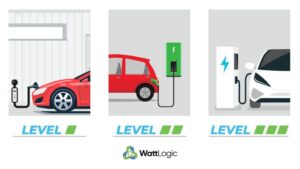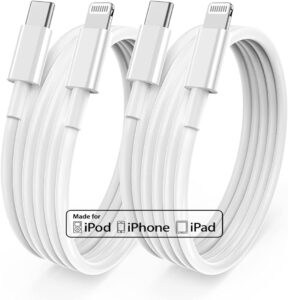Will emergency lights drain and kill your battery? The short answer is no, they won’t, but there is more to it than a simple yes or no. If you’ve ever wondered about the impact emergency lights have on your vehicle’s battery, you’re not alone. We rely on emergency lights to keep us safe during unexpected situations, but we also want to ensure that our battery remains charged and ready when we need it. In this article, we will dive into the topic of emergency lights and their effect on your battery, providing you with valuable insights and solutions along the way. So, let’s shed some light on this topic and put your battery worries to rest.
Will Emergency Lights Drain And Kill Your Battery?
Emergency lights play a crucial role in providing illumination during unexpected power outages or emergencies. Whether you have emergency lights in your home, vehicle, or workplace, it’s important to understand their impact on your battery. One common concern among users is whether emergency lights can drain and potentially kill their battery. In this article, we will explore this topic in detail and provide you with all the information you need to better understand the impact of emergency lights on your battery.
Understanding Emergency Lights
Before we delve into the battery drain concerns, let’s first understand what emergency lights are and how they function. Emergency lights are designed to provide lighting in situations where the normal power supply is disrupted. They are equipped with battery backup systems that ensure they continue to operate during power outages.
Emergency lights can be categorized into two main types: battery-operated lights and hardwired lights. Battery-operated emergency lights are powered by internal batteries, while hardwired lights are connected directly to the building’s electrical system and are supported by backup batteries in case of power failure.
How Emergency Lights Affect Batteries
Now, let’s address the burning question: can emergency lights drain and kill your battery? The answer depends on various factors, including the type of emergency lights you have and how they are connected to the power source.
- Battery-Operated Emergency Lights: Battery-operated emergency lights are independent systems that rely on their own internal batteries. They do not directly affect your vehicle or home battery. They have their own power source and will not drain any external battery. However, it’s important to periodically check and replace the batteries to ensure the emergency lights are always ready for use.
- Hardwired Emergency Lights: Hardwired emergency lights, on the other hand, are connected to the building’s electrical system and may have backup batteries. In case of a power outage, these lights will switch to battery power. While they draw power from the building’s electrical system, they also consume a small amount of energy to keep their batteries charged. However, the power draw is minimal and will not drain the battery significantly.
It’s worth noting that the impact of emergency lights on batteries will vary based on usage, battery capacity, and the overall health of the battery. In most cases, the drain caused by emergency lights is negligible and should not affect the battery’s performance or lifespan.
Tips to Minimize Battery Drain
While emergency lights are unlikely to drain your battery, it’s always a good idea to be proactive and take steps to minimize any potential drain. Here are some tips to keep your battery in optimal condition:
- Regular Maintenance: Regularly inspect and maintain your emergency lights to ensure they are functioning efficiently. This includes checking the batteries, replacing them when necessary, and cleaning any dirt or debris that may affect their performance.
- Proper Usage: Use emergency lights only when necessary. Avoid keeping them on for extended periods when not required, as this can unnecessarily drain the batteries. During normal operations, it’s best to keep the lights off to conserve battery power.
- Monitor Battery Health: Keep a close eye on the overall health of your batteries. This includes checking their voltage levels, ensuring proper charging, and replacing old or faulty batteries promptly.
- Use Energy-Efficient Lights: Opt for energy-efficient emergency lights that consume less power. LED lights, for example, are known for their low power consumption and longer lifespan, making them a smart choice for emergency lighting.
- Consider Solar-Powered Options: Solar-powered emergency lights are another great alternative. They harness energy from the sun and store it in integrated batteries, eliminating the need for grid-dependent power sources.
By following these tips, you can ensure that your emergency lights have minimal impact on your battery and are always ready to provide reliable illumination during times of need.
In conclusion, emergency lights are designed to provide lighting during power outages or emergencies without significantly draining your battery. Battery-operated emergency lights have their own power source, while hardwired lights draw minimal power from the building’s electrical system. By properly maintaining your emergency lights and following energy-saving practices, you can minimize any potential drain on your battery. Remember, it’s important to prioritize safety and be prepared for unexpected situations by having reliable emergency lighting systems in place.
Frequently Asked Questions
Will emergency lights drain and kill your battery?
Emergency lights can drain your vehicle’s battery if left on for an extended period of time. However, they are designed to draw minimal power to ensure that they do not excessively drain your battery. It is always recommended to use emergency lights sparingly and turn them off when they are no longer needed to avoid potential battery drain issues.
How long can emergency lights be used before draining the battery?
The length of time emergency lights can be used before draining the battery varies depending on several factors, such as the type of emergency lights, the condition of the battery, and the power consumption of other vehicle components. In general, emergency lights can be used for several hours without causing significant battery drain. However, it is important to monitor the battery voltage and turn off the lights if the battery level drops below a safe threshold.
Can using emergency lights while the engine is off drain the battery?
Using emergency lights while the engine is off can indeed drain the battery, especially if they are left on for an extended period of time. Since emergency lights rely on the vehicle’s battery for power, it is important to be cautious when using them with the engine off. If you need to use emergency lights while the engine is off, it is recommended to periodically start the engine to recharge the battery or utilize an external power source.
Do emergency lights drain the battery faster than regular lights?
Emergency lights typically have a lower power consumption than regular lights, which helps reduce battery drain. They are designed to provide ample visibility while minimizing energy usage. However, it’s important to note that prolonged use of emergency lights, regardless of their power consumption, can still drain the battery if not monitored or managed properly.
Can a dead battery be caused by leaving emergency lights on?
Leaving emergency lights on for an extended period of time can certainly drain your vehicle’s battery and potentially lead to a dead battery. The drain on the battery depends on various factors such as the condition of the battery, the power consumption of the lights, and the duration of usage. It is always recommended to promptly turn off emergency lights when they are no longer needed to avoid the risk of a dead battery.
Final Thoughts
Emergency lights can indeed drain and potentially kill your battery if not used correctly. These lights are designed to draw power from the vehicle’s battery, which can lead to a significant drain over time. It is important to use emergency lights sparingly and only when necessary to avoid causing a dead battery. Regularly checking the battery’s health and charge level is crucial to prevent any unexpected drain. Additionally, utilizing alternative power sources or investing in a separate battery for emergency lights can help mitigate this risk. So, will emergency lights drain and kill your battery? Yes, if not managed properly.




